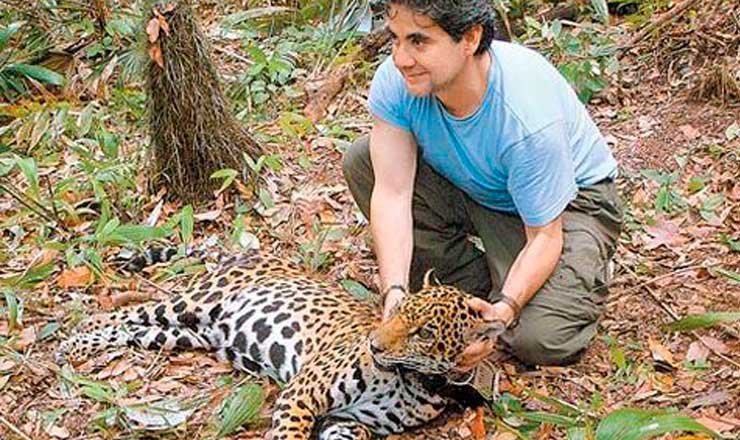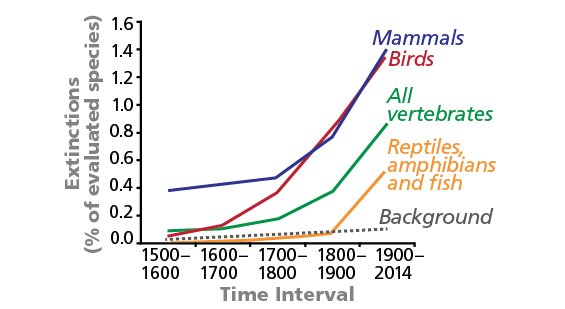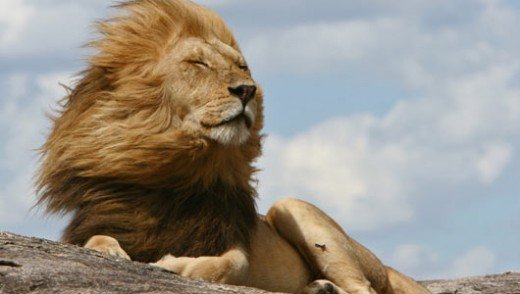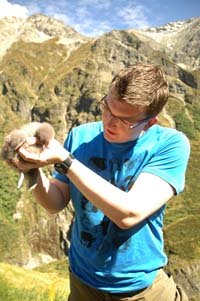World Biggest Mass Extinction Is On Its Way…
Saira Sikandar
Zoologist
I think it is not necessary to explain how biodiversity is important for a mankind. As we the humans actually depends upon them for the most of our life activities and need. So let me direct explain what is extinction really meant and how is on its way..
An extinction event also known as a mass extinction or biotic crisis. It is a widespread and rapid decrease in the biodiversity (plant and animals) on planet Earth. This kind of event is identified by a sharp change in the diversity and abundance of multicellular organisms. Normally it happen when the rate of extinction increases with respect to the rate of speciation (like if any system has low input than its output). Estimates of the number of major mass extinctions in the last 540 million years range from as few as five to more than twenty. These differences stem from the threshold chosen for describing an extinction event as "major", and the data chosen to measure past diversity.
Top Five Extinctions
Cambrian Explosion:
Early life-forms began to flourish. (540 million years ago)
Ordovician-Silurian Extinction:
Small marine organisms died out. (440 mya)
Devonian Extinction:
Many tropical marine species went extinct. (365 mya)
Permian-Triassic Extinction:
The largest mass extinction event in Earth's history affected a range of species, including many vertebrates. (250 mya)
Triassic-Jurassic Extinction:
The extinction of other vertebrate species on land allowed dinosaurs to flourish. (210 mya)
Cretaceous-tertiary Extinction: (65.5 mya)
https://www.amnh.org/exhibitions/dinosaurs-ancient-fossils-new-discoveries/extinction/mass-extinction
World’s sixth biggest mass extinction is on its way
A “biological annihilation” of wildlife in recent decades means a sixth biggest mass extinction in Earth’s history is under way and is more severe and dangerous than previously feared, according to many Scientist
Many scientists blame human overpopulation and overconsumption for the crisis and warn that it threatens the survival of human civilization, with just a short window of time in which to act and Scientists also analyzed both common and rare species and found billions of native species have been lost.
The study, published in the peer-reviewed journal Proceedings of the National Academy of Sciences, eschews the normally sober tone of scientific papers and calls the massive loss of wildlife a “biological annihilation” that represents a “frightening assault on the foundations of human civilization”.
Prof Gerardo Ceballos, at the Universidad Nacional Autónoma de México, who led the work, said: “The situation has become so bad it would not be ethical not to use strong language.”

He is a member of several scientific societies such as the Mexican Academy of Sciences, the American Association of Ecology and the Mexican Mastozoology Association. He is a member of the National System of Researchers (Level 3). He has received 22 recognitions in his scientific career. (http://www.fundacionunam.org.mx/rostros/gerardo-ceballos-experto-en-ecologia-animal-y-conservacion-de-la-naturaleza/)
Previous studies have shown that species were becoming extinct at a significantly slower rate than for Present years, but even so extinctions remain relatively rare (many animals has been conserve) giving the impression of a steady loss of biodiversity. The new work instead takes a broader view, as many animals’ ranges shrink so they are losing populations all over the world but remain present elsewhere.
Detailed data is available for land mammals in many website and reports as many of the organization working on wild life, and which concluded that almost half of these have lost 80% of their range in the last century. Which lead scientist to say a sixth mass extinction has already progressed further than was thought.

In the past 500 years, many vertebrate species have perished, primarily due to hunting and loss of habitat. This graph, from a Science Advances study, shows the increasing percentage of animals lost over time, compared with the losses that would have occurred naturally (dotted line).
Geraldo Ceballos et al./Science Advances/June 19, 2015/10.1126/sciadv.1400253
The scientists conclude from their research that “The resulting biological annihilation will obviously have serious ecological, economic, ethical and social consequences. Human kind will eventually pay a very high price for the devastation of the only assemblage of life that we know of in the universe.”
Wildlife is vanishing out due to anthropogenic activity like habitat destruction, overhunting, toxic pollution, invasion by alien species and climate change. But the vital cause of all of these factors is “human overpopulation and continued population growth”.
“The serious warning in my this very article needs to be noticed because Human race depends utterly on the plants, animals, and microorganisms of Earth that supply it with essential ecosystem services ranging from food production to Decomposition”
Ehrlich told the Guardian. Other ecosystem services include clean air and water. “The time to act is very short,” he said. “It will, sadly, take a long time to humanely begin the population shrinkage required if civilisation is to long survive, but much could be done on the consumption front and with ‘band aids’ – wildlife reserves, diversity protection laws – in the meantime.” Ceballos said an international institution was needed to fund global wildlife conservation.
The researchers also point out to the “emblematic” case of the lion: which was historically distributed over most of Africa, southern Europe, and the Middle East, all the way to northwestern India. Now the enormous lion populations are gone.” their habitat has been reduced to a few tiny pockets of the original area

https://onekindplanet.org/animal/lion/
Some of the scientist yet disagreed that sixth mass extinction is on its way like Prof Stuart Pimm, at Duke University in the US and not involved in the new work, said the overall conclusion is correct, but he disagrees that a sixth mass extinction is already under way: “It is something that hasn’t happened yet – we are on the edge of it.”
Robin Freeman, at the Zoological Society of London, UK, said: “While looking at things on aggregate is interesting, the real interesting nitty gritty comes in the details. What are the drivers that cause the declines in particular areas?”
 https://www.zsl.org/science/users/robin- 1
https://www.zsl.org/science/users/robin- 1
Freeman was part of the team that produced a 2014 analysis of 3000 species that indicated that 50% of individual animals have been lost since 1970, which scores with the new work but was based on different IUCN data. He agreed strong steps are needed: “We need people to be aware of the terrible declines we are seeing
I am appealing to all people. That we are seriously at very crticl condition, if we don’t take it serious now we will lose each every things with a blink of an eye.
Thank You
Congratulations @sairasikandar! You have completed the following achievement on the Steem blockchain and have been rewarded with new badge(s) :
Click here to view your Board
If you no longer want to receive notifications, reply to this comment with the word
STOP